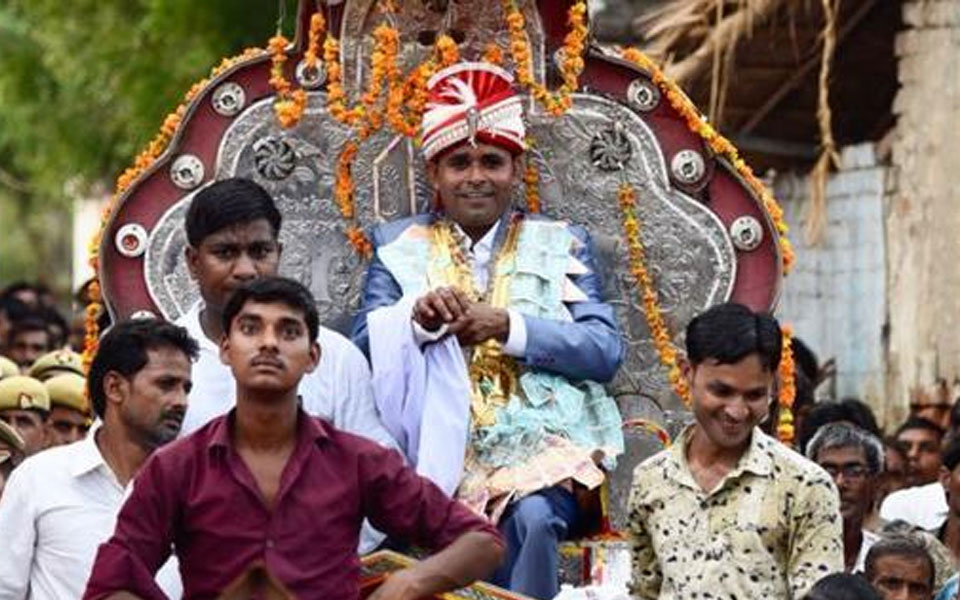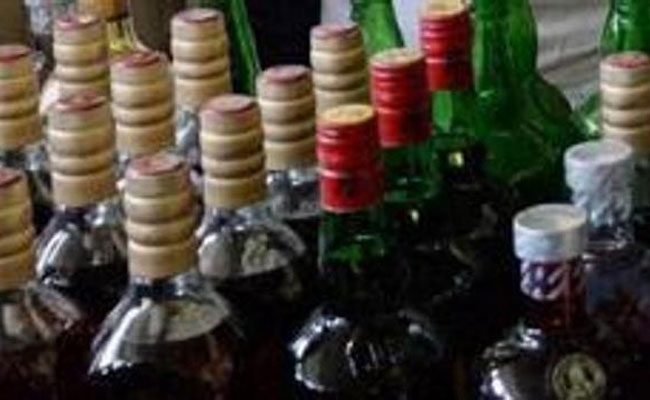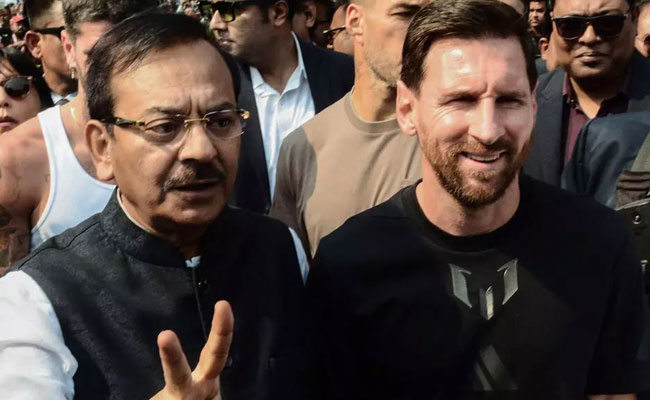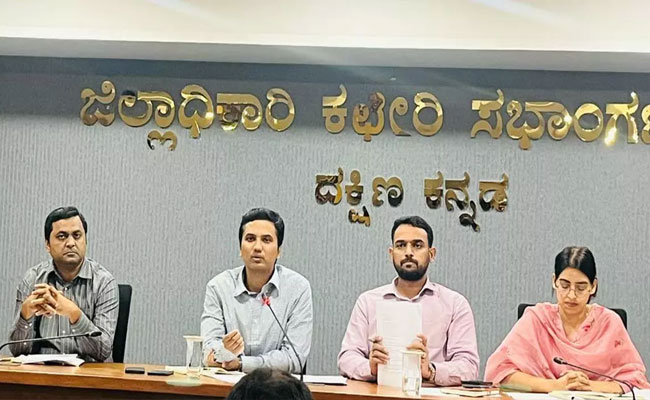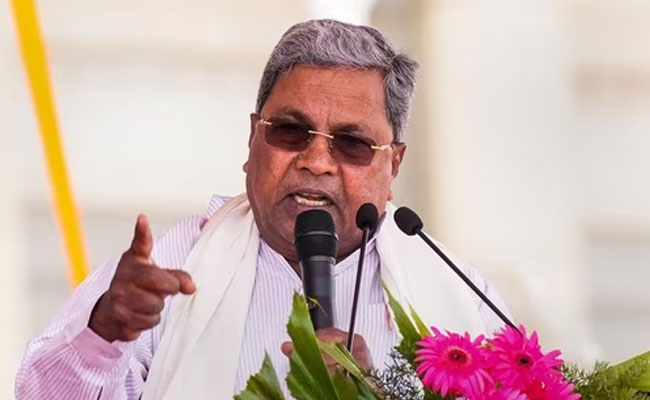KASGANJ, UTTAR PRADESH: “Today, I have become a cabinet minister.” Sanjay Jatav, 27, was in raptures as he led his wedding procession through Nizampur village, passing upper caste neighbourhoods, capping six months of struggle to become the first Dalit man to do so.
“This is the 21st century but some don’t think Dalits should have dignity. I am the first to take a ‘baraat’ (wedding procession) out in this village. It is only because of Babasaheb and his Constitution that it has been possible,” said Jatav, dressed in a powder-blue suit, as hundreds of people ring-fenced his horse-drawn buggy.
Flanked by rice fields on either side, the village of about 100 households in Uttar Pradesh’s Kasganj district became the unlikely site of resistance in February after Jatav announced his intention of routing his ‘baraat’ through his bride’s village - a common practice among upper castes. But this route winded through several Thakur pockets, and quickly became controversial for defying decades-old caste discrimination that forced Dalits to keep their weddings short and simple.
The district administration refused permission at first, but Jatav refused to back down, appealing to the district magistrate, the superintendent of police, the Allahabad high court and even the chief minister’s office.
In April, Jatav won a victory of sorts after the local administration charted an alternative route that halved the distance of his desired path but still included several Thakur houses.
“The Jatavs of Basai ( his ancestral village) do what they say. And Sanjay Jatav is one of them,” he said triumphantly.
The administration fortified the area around his bride’s village, deploying 10 police inspectors, 22 sub-inspectors, 35 head constables, 100 constables and a platoon of the state provincial armed constabulary.
“Even if someone wants to create trouble, it wouldn’t be possible for them to do that. We have made sure there are more police than guests in this wedding,” said RP Singh, Kasganj’s district magistrate.
Jatav, a local worker with the Bahujan Samaj Party, drove from his village, about 20km away, in a convoy of 30 cars, a police pilot vehicle and an armed security guard. Right outside Nizampur, he was greeted by a phalanx of press, senior police and administration officers and political leaders cutting across party lines.
Thakur families watched Jatav’s grand procession — featuring police escorts, a DJ cart and breathless villagers dancing around the buggy — perched on their rooftops, exchanging details of the wedding arrangement.
Asked why her family is taking the risk of retribution in a village where Dalits are outnumbered 1:10, the bride, Sheetal Kumari, said: “We want our fair share of rights. India is a free country and the Constitution gives everyone equal rights.”
Despite the successful wedding, the fight for the Dalit families may not have ended as hostilities continue to simmer. “Not one Thakur in the village will attend this wedding,” said Rupender Chauhan, a village resident. “Repercussions will follow, if not in two days then in two years.”
Dalits form around a fifth of Uttar Pradesh’ population and Jatavs are the largest Dalit group, considered a loyal support base of former chief minister Mayawati.
Since independence, Dalits have made great strides in education, employment and social mobility, owing partially to reservations, but the progress has triggered resentment among erstwhile dominant castes in recent years.
This year alone, several incidents of Dalit grooms being beaten up for riding horses and taking out grand processions have been reported from across India, including in Gujarat, Rajasthan, Uttar Pradesh and Madhya Pradesh.
courtesy : hindustantimes.com
Let the Truth be known. If you read VB and like VB, please be a VB Supporter and Help us deliver the Truth to one and all.
Belagavi (Karnataka) (PTI): The Karnataka Excise Department has conducted a statewide crackdown on illegal liquor trade over the last two years, resulting in arrests and seizures of alcohol, Karnataka Excise Minister R B Timmapur said on Tuesday.
As many as 1,09,017 people were arrested, and seizures included 13.66 lakh litres of liquor and 27.19 lakh litres of beer, he said in a written reply to a starred question by Harihar BJP MLA B P Harish in the Karnataka Assembly.
The Minister said the enforcement drive covered the financial year 2023–24, 2024–25 up to June, and 2025–26 from July to October, targeting unauthorised liquor manufacture, storage, sale and transportation across the State.
"During this period, statewide enforcement drives resulted in a total of 1,84,570 raids against illegal liquor sales,” Timmapur said.
ALSO READ: BJP accuses Karnataka govt of 'failing' to prevent noise pollution caused by 'azaan'
He noted that 9,179 non-bailable cases and 91,968 bailable and compoundable cases under Section 15(A) of the Karnataka Excise Act, 1965, were registered during the same period.
According to him, there have been no reports indicating that students have become addicted to alcohol due to illegal liquor sales.
The sale of alcohol to minors is strictly prohibited under the Karnataka Excise Act, 1965, and the department has issued periodic instructions to initiate legal action against violators, with strict enforcement and investigation measures in place, the Minister said.
Excise officials are carrying out regular road and night patrols, collecting intelligence, monitoring habitual offenders and conducting raids to identify illicit distillation units, unauthorised liquor outlets and spurious liquor manufacturing centres, he said, adding the department is also enforcing the law to prevent the production, storage, sale and transport of spurious, non-duty-paid and unauthorised liquor.
Regular patrols are being conducted on national and state highways, with suspicious vehicles being subjected to checks.
At the district level, standing committee meetings are held under the chairmanship of Deputy Commissioners, and joint operations are carried out with the police and forest departments to curb excise-related offences.
The department is also conducting awareness programmes through Gram Sabhas and in schools and colleges to educate the public and students about the physical, mental and social health hazards associated with alcohol addiction and substance abuse, Timmapur added.

